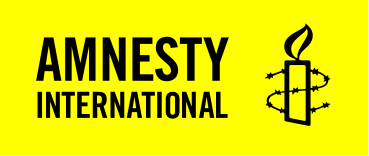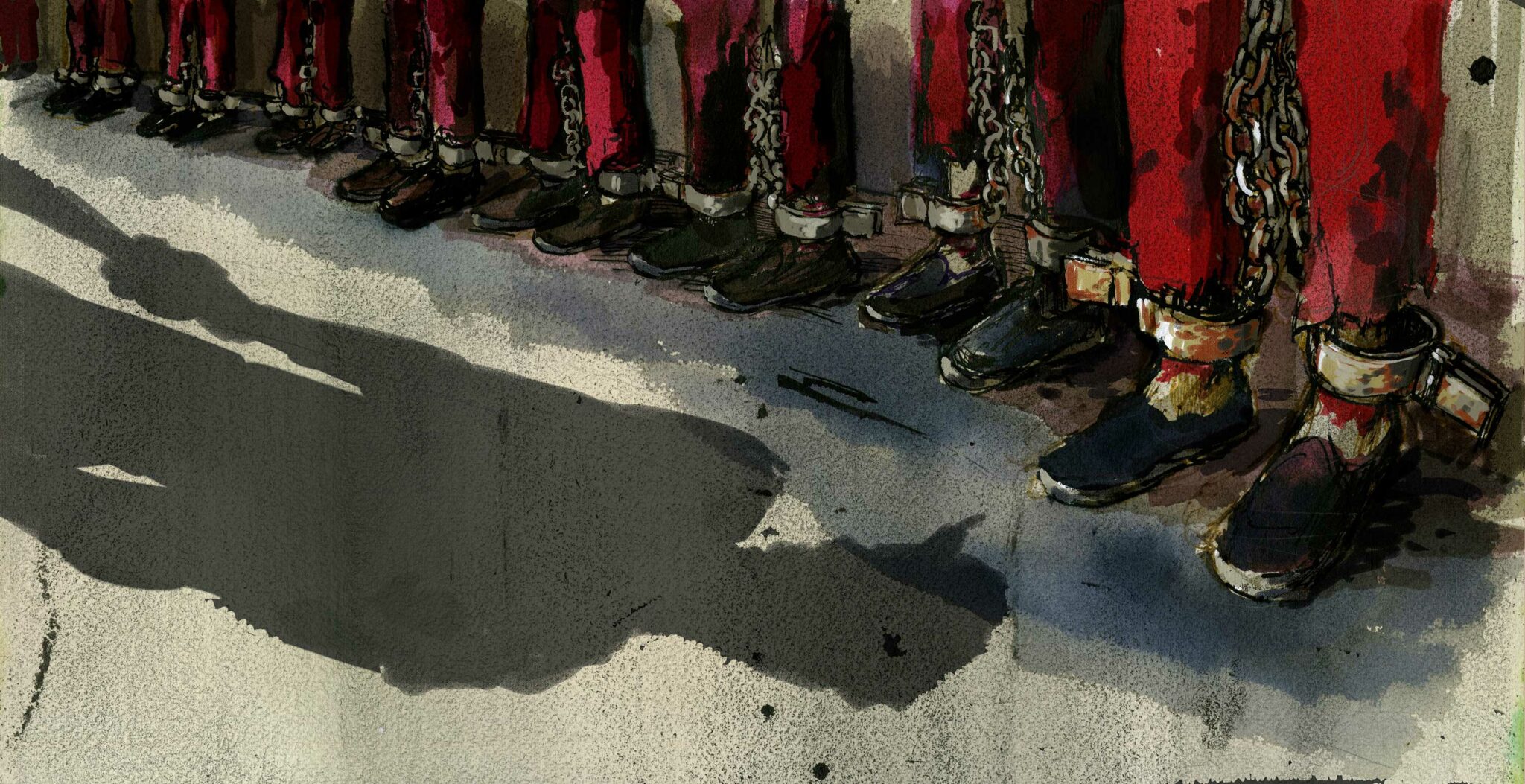Evidence of the crimes against humanity of imprisonment, torture, and persecution
According to the evidence Amnesty International has gathered, corroborated by other reliable sources, members of predominantly Muslim ethnic minorities in Xinjiang have been subjected to an attack meeting all the contextual elements of crimes against humanity under international law.
The widespread nature of the attack is evident both because huge numbers of individuals from predominantly Muslim ethnic groups in Xinjiang have been imprisoned, tortured, or persecuted and because these violations have occurred throughout the geographical area of Xinjiang. The violations appear to have been systematic since the victims have been subjected to the same or comparable forms of persecution, deprivation of liberty, conditions of detention, torture and other ill-treatment, and harassment and surveillance on release, regardless of where they were seized and where they were detained. All were detained in various camps administered by Chinese state authorities throughout the region, making it inconceivable that these violations are random occurrences.
The same evidence demonstrates that these violations were organized, planned, and committed consequent to a state policy to direct an attack against a civilian population – in this case members of predominantly Muslim ethnic minority groups. Evidence also shows that violence, arbitrary and unlawful imprisonment, and intimidation to achieve the government’s aims to ostensibly eradicate “terrorism”, “extremism”, and “separatism” are, in effect, also used to target Islamic religious practices and beliefs and Turkic Muslim ethno-cultural practices. These acts have been targeted exclusively at members of predominantly Muslim ethnic groups and effectively all members of these groups are vulnerable to imprisonment and ill-treatment, demonstrating that the attack has been directed at a civilian population.
The evidence Amnesty has collected therefore provides a factual basis for the conclusion that the perpetrators, acting on behalf of the Chinese state, have carried out a widespread as well as systematic attack consisting of a planned, massive, organized, and systematic pattern of serious violations of international human rights law directed at the civilian population in Xinjiang.
Evidence Amnesty International has collected provides a factual basis for the conclusion that the Chinese government has committed at least the following crimes against humanity:
-
Imprisonment or other severe deprivation of physical liberty in violation of fundamental rules of international law: [[[Rome Statute, Artilce 7(1)(e).]]] Under the Rome Stature, this offence requires that “The perpetrator imprisoned one or more persons or otherwise severely deprived one or more persons of physical liberty,” and that “[t]he gravity of the conduct was such that it was in violation of fundamental rules of international law.” [[[For the elements of the crime against humanity of imprisonment see International Criminal Court The Elements of Crimes, Article 7(1)(e) →]]] The 55 former detainees interviewed for this report provided accounts of their arbitrary detention and the arbitrary detention of other people detained with them in internment camps throughout Xinjiang. Evidence gathered by journalists, scholars, and other investigators suggests that massive numbers – estimated at 1 million or more – of men and women have been arbitrarily detained in internment camps or prisons throughout Xinjiang since 2017.
- Torture: [[[Unlike torture as defined in Article 1 of the CAT, there is no requirement that the ill-treatment be committed for a specific purpose, or a requirement that the ill-treatment be “inflicted by or at the instigation of or with the consent or acquiescence of a public official or other person acting in an official capacity. In addition, the Rome Statute does not explicitly differentiate between torture and other cruel, inhuman, and degrading treatment as the CAT does. Nevertheless, the ICC has held that a conviction of the crime against humanity of torture will require “an important degree of pain and suffering”, implying that the threshold under the CAT may apply (See Prosecutor v Jean-Pierre Bemba Gombo ICC Pre-Trial Chamber II, Decision Pursuant to Article 61(7)(a) and (b) of the Rome Statute ICC-01/05-01/08 15 June 2009 para 193). However, the ICC has also held that it will not judge the severity of each incident of ill-treatment; instead, it will consider the cumulative effect of a course of conduct. (Prosecutor v. Krnojelac, ICTY Trial Chamber II, Judgement, IT-97-25-T, 15 March, paras. 182-183. See also, Prosecutor v. Brđanin, ICTY Appeals Chamber, Judgement, IT-99-36-A, 3 April 2007, para. 251, citing Prosecutor v. Naletilić and Martinović, ICTY Appeals Chamber, Judgement, IT-98-34-A, 3 May 2006, para. 299; Prosecutor v. Delalić et al., ICTY Trial Chamber, Judgement, IT-96-21-T, 16 November 1998 (“Delalić Trial Judgement”), para. 467; Ireland v. United Kingdom, Case no. 5310/71, Judgment, 18 January 1978, para. 162.)]]] Under the Rome Statute, torture means “the intentional infliction of severe pain or suffering, whether physical or mental, upon a person in the custody or under the control of the accused; except that torture shall not include pain or suffering arising only from, inherent in or incidental to, lawful sanctions.” [[[Rome Statute, Article 7(1)(f) and 7(2)(e); For the elements of the crime against humanity of torture see International Criminal Court The Elements of Crimes, Article 7(1)(f) →]]] The 55 former detainees interviewed for this report provided accounts of torture and other ill-treatment they experienced inside the internment camps, as well of torture and other ill-treatment they witnessed being done to other detainees in their camps. This ill-treatment includes the physical torture of a significant portion of the internment camp population by prolonged and severe beatings, electric shocks, stress positions, the internationally unlawful use of restraints (including being locked in a tiger chair), the physical consequences of sleep deprivation, and solitary confinement.
This ill-treatment also includes the physical and mental torture or other ill-treatment of all internment camp detainees as a result of the cumulative effects of daily life in the camps, which may also amount to torture as defined under international criminal law. This treatment includes being made to sit, kneel, or stand in stress positions for hours every day; sleep deprivation; and insufficient food, water, exercise, and exposure to natural light. It also includes various forms of psychological abuse, including and exacerbated by not knowing when one’s detention will end, not being able to communicate with one’s family or anyone outside the camp, not being able to speak in one’s native language while in detention, living under constant threat of violence and other abuse, and being made to see and hear other detainees being tortured or otherwise ill-treated. This testimonial evidence is broadly consistent with other first- and second-hand accounts of torture and other ill-treatment documented by journalists and other human rights organizations.
- Persecution: The Rome Statute defines persecution as “the intentional and severe deprivation of fundamental rights contrary to international law by reason of the identity of the group or collectivity”. [[[Rome Statute, Article 7(1)(h) and 7(2)(g); for the elements of the crime against humanity of “Persecution against any identifiable group or collectivity on political, racial, national, ethnic, cultural, religious, gender as defined in paragraph 3, or other grounds that are universally recognized as impermissible under international law, in connection with any act referred to in this paragraph or any crime within the jurisdiction of the Court,” see International Criminal Court The Elements of Crimes, Article 7(1)(h) →]]] The evidence Amnesty has gathered strongly indicates that such persecution has occurred, including through the ethnically targeted campaign of mass arbitrary detention and torture documented in this report, as well as other ethnically targeted grave violations of human rights, including the rights to liberty and security of person; to privacy; to the freedoms of movement, opinion, expression, thought, conscience, religion, and belief; to take part in cultural life; and to equality and non-discrimination, documented in Chapter 2.



